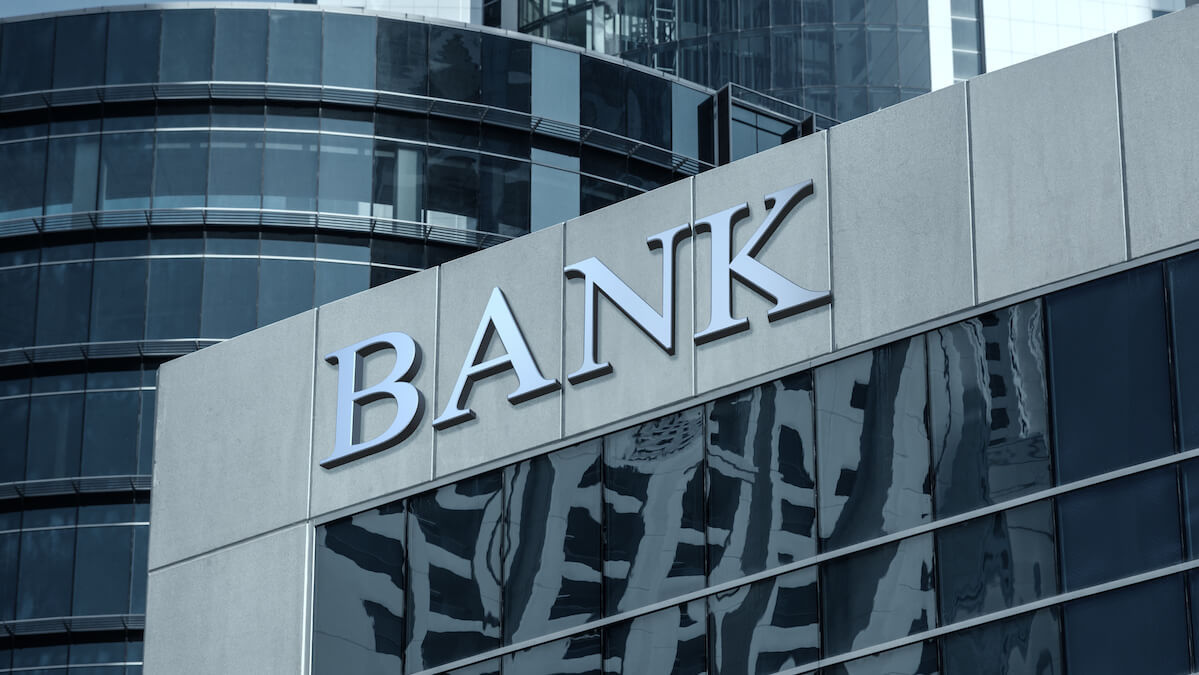
[ad_1]
KEY
TAKEAWAYS
- A number of fringe economists are sounding the alarm on a looming sequence of banking collapses
- With financial institution holdings of presidency debt now underwater, some declare that banks are just about bancrupt in consequence
- Whether or not any of this takes place, even partially, technical ranges on the charts will help you navigate this unsure interval

2024 will probably be marked by an enormous string of financial institution failures!!! Effectively, in accordance to some economists on the far finish of the mainstream financial spectrum, that’s.
This sounds alarming, after all, however does the perimeter place of its proponents invalidate the thesis?
No Financial institution Is Protected, as Practically Each Financial institution Is Bancrupt
The core motive for this impending disaster will be linked to the insolvency of just about each financial institution.
However how’s that even attainable? How can they essentially validate such an outlandish declare? It is the consequence of the Federal Reserve’s rate of interest insurance policies. With rates of interest hovering, the worth of banks’ authorities debt holdings is considerably underwater—sufficient to drown banks’ reserves in a sea of crimson.
So what is the large takeaway from the doom-and-gloom pulpit? It is this: the massive implosion is coming, and it is occurring this yr.
“However maintain on,” the reasonable view says, “Not so quick; it will probably’t be that dangerous, even when the end result is not all that good.”
Let’s be goal, beginning with: What do the technicals say?
The Macro View: Too-Massive-To-Fail and Regional Banks
Whereas the danger of some extra financial institution failures is believable (since just a few are likely to occur every year, on common and on a regional stage), a string of failures triggering a systemic banking disaster is one thing else. Can it occur?
CHART 1. PERFCHART OF SMALL AND LARGER BANKS AND THE S&P 500. Be aware their speedy restoration because the March 2023 banking disaster (shortly stemmed by the Federal Reserve’s Financial institution Time period Funding Program, which ended on March 11, 2024).Chart supply: StockCharts.com. For instructional functions.
Final yr, Silvergate Financial institution, Silicon Valley Financial institution (SVB), and Signature Financial institution collapsed, triggering what would have been a a lot bigger disaster had the Federal Reserve not stepped in with its Financial institution Time period Funding Program (BTFP). BTFP aimed to stabilize the banking system by offering loans to banks and credit score unions in opposition to collateral like US Treasuries and mortgage-backed securities valued at par.
Wanting on the chart, you possibly can see how massive banks (utilizing KBE and $DJUSBK as proxies) and regional banks (utilizing KRE as a proxy) underwent a speedy restoration. In comparison with a yr in the past, massive banks are outperforming the S&P 500 ($SPX) whereas regional banks, the laggards, are nicely inside optimistic territory.
The Channel Broke
CHART 2. DAILY CHART OF KBE. Value simply broke beneath the upward pattern channel, however the drop in momentum may need forecasted this decline a month in the past.Chart supply: StockCharts.com. For instructional functions.
Momentum for KBE, an business proxy for big banks, started hinting at a bearish divergence in momentum in early March primarily based on the Chaikin Cash Circulate’s (CMF) excessive downward slope into damaging territory. Its rise in opposition to the S&P 500 was tepid and regular, however its underperformance in opposition to the Dow Jones US Financial institution Index was as silent because it was foreboding.
KBE lastly broke beneath its uptrend value channel, and the subsequent set of assist ranges are on the $41, $39, and $37 vary. The present decline was triggered by Wednesday’s damaging Client Value Index (CPI) outcomes, quickly to be adopted by Thursday’s Producer Value Index (PPI) numbers. How low can KBE drop? Take note of the present earnings season—learn the figures, analyze CEO-issued steerage, and take into account (if it is wise sufficient) just a few analyst forecasts that are not simply following (or regurgitating) mainstream opinions.
What about regional banks?
CHART 3. DAILY CHART OF KRE. Regional banks are drastically underperforming their bigger counterparts within the banking sector. Chart supply: StockCharts.com. For instructional functions.

On March 27, the article KRE’s Impending Plunge: What This Rising Disaster Means forecasted this decline primarily based on comparable technical and basic assessments. You’ll be able to see the divergence between KRE’s value and the CMF. What wasn’t mentioned, although, was KRE’s silent (by way of drastic) underperformance in opposition to its bigger banking sector counterpart ($DJUSBK).
The potential assist ranges are additionally outlined within the chart above ($45, $44, and $43 vary) although its persevering with slide, and whether or not it plunges additional will probably be pushed by basic situations. Like KBE, take note of the present earnings season’s figures and information.
Is the Implosion Coming?
Within the shadow of final yr’s banking failures, a number of economists from the margins of mainstream forecasts ominously predict a widespread banking collapse in 2024. This dire prediction is rooted within the perception that almost each financial institution teeters on the point of insolvency, a disaster precipitated by the Federal Reserve’s rate of interest insurance policies, which have left banks’ reserves susceptible because of devalued authorities debt holdings.
After all, this might all be alarmist rhetoric. But when it does play out, partially or solely, the technical ranges and indicators at play will help you navigate the circumstances must you determine to take motion, whether or not it is bullish or bearish.
Disclaimer: The content material on this article is the author’s opinion and doesn’t represent monetary recommendation. StockCharts.com doesn’t endorse or assure any claims made on this article. The concepts and methods ought to by no means be used with out first assessing your individual private and monetary scenario, or with out consulting a monetary skilled.

Karl Montevirgen is an expert freelance author who makes a speciality of finance, crypto markets, content material technique, and the humanities. Karl works with a number of organizations within the equities, futures, bodily metals, and blockchain industries. He holds FINRA Sequence 3 and Sequence 34 licenses along with a twin MFA in vital research/writing and music composition from the California Institute of the Arts.
Be taught Extra
[ad_2]